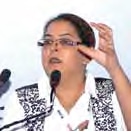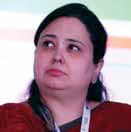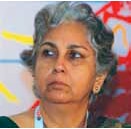
Simmi Kher,
Coordinator-India, Tony Blair Faith Foundation
Education for sustainable development should focus on key issues like climate change, disasters reduction, biodiversity, poverty reduction, sustainable consumption, etc.
Many years have passed since the United Nations launched the decade of education for sustainable development during the years 2005 to 2014. Now we are at the last two years of that decade. The UN General Assembly has designated UNESCO as a lead agency to promote the initiative of education for sustainable development.
The vision for this decade (2005- 2014) was to ensure that everyone in the world had the opportunity of benefitting from quality education. Everyone should be able to learn values and master new skills. Now the question to the educators is – Have we been successful in providing equal educational opportunities to all?
Education for sustainable development should focus on key issues like climate change, disasters reduction, biodiversity , poverty reduction, sustainable consumption, etc. This requires farreaching changes in the way education is practiced today. The Tony Blair Faith Foundation is devoted to contributing its mite in promoting cultural and religious empathy in the world. The Foundation is currently active in 19 countries.
The Face to Faith programme from the Tony Blair Foundation is focussed on schools. It engages students from different faiths into a meaningful dialogue. The aim of the exercise is to enable students to develop connections with rest of the world.




























